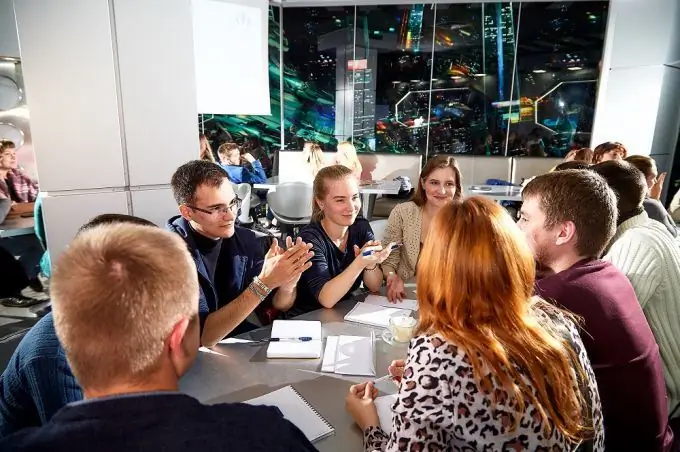- Author Caroline Forman [email protected].
- Public 2023-12-16 11:46.
- Last modified 2025-01-23 09:54.
It would seem that there is nothing difficult in creating a team for the game: to bring together the most erudite, well-read, train them a little … Undoubtedly, erudition, broad outlook, good memory are indispensable conditions for participating in an intellectual game, but these qualities are not guaranteed to be successful …

How can we ensure that the team is not ideal, but capable of winning? Here are some tips.
Without going back to the qualities already mentioned, it should be noted that the most important condition for a successful game is also the contact of the players, their openness, the ability to offer their versions and be attentive to strangers. Even the most erudite player who does not possess these qualities turns out to be superfluous on the team. These players have two types of behavior. Anyone who, although he knows a lot, is used to staying away from his peers, during the discussion does not so much offer answers as, fearing to be mistaken, thinks over a free version "inwardly". The one who is accustomed to being a leader, has believed in the indisputability of his opinion, will impose it on his partners, regardless of other judgments. Most intellectual games are designed for joint activities, this is just the case when "the mind is good, and two is better", so any manifestations of individualism are inappropriate here.
It is best when the players on the same team and outside the game are good friends.
The next quality that every player should have is non-standard thinking. If you have tried to play mind games before, you are well aware of how stereotypes get in the way of coming up with the right answer. The answer that literally suggests itself is by no means always correct. In the game, you should "work out" any version, including the most paradoxical, but for this you need to at least express them.
In addition to being able to think outside the box, players need to be able to summarize their versions. Unhurried, judicious, solid players, with all due respect to them and to these qualities in everyday life, alas, most often only interfere with their team with their lengthy monologues during the discussion.
In addition to the qualities that all participants must possess, each of them must play a certain role in the team. Of course, these roles are not assigned to the players once and for all, they can be changed and combined during the game.
For example, a team must have a captain. This is, as a rule, the one who has the most authority on the team. However, this does not mean that the captain is the most erudite player. His function in the team is more like a "control room". He does not allow to linger on one version for a long time, it is he who chooses one version from all available, it is he who answers the question at the moment when the team does not have a version (this also happens).
In addition, the team should have a main generator of ideas, which, in the allotted time, gives out the maximum number of versions, including unexpected and paradoxical ones.
There should be a team member who does not have leadership qualities or passion, but has a large store of knowledge, one of those who are called a "walking encyclopedia." Without knowledge of extensive factual material, no non-standard thinking will help.
It's good when the team also has someone who, in difficult times, can defuse the situation with a good joke or witty remark. This is important not only in a utilitarian sense. Practice shows, by the way, that sometimes the version expressed as a joke, out of despair, turns out to be correct, to everyone's amazement and delight.






